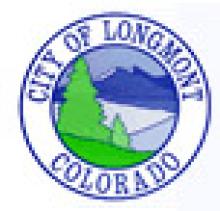By
on

Colorado requires a referendum before a local government can build a broadband network as a result of a 2005 law pushed by Qwest to prevent communities from building next-generation networks. So when Longmont wanted to expand its fiber ring to offer residential and business services, they put it to a vote.
They lost with only 44% supporting the measure. But now, more people understand the issue and the community is considering voting again.
We saw the same dynamic in Windom, Minnesota. Almost ten years ago, Windom held a vote to build a muni FTTH network and it failed to gain the Minnesota-required 65% supermajority. After the vote, a number of people wanted to revote because they realized they had been conned by the incumbent phone provider (ahem… Qwest) and only truly understood the issue after the vote had occurred.
City officials wanted no part of another referendum but community champions eventually prevailed and they had a second vote that authorized the community to build the network.
We'll see if Longmont follows suit. An article discussing the re-vote notes that Comcast and Qwest have dumped unprecedented sums into preventing the community from having a new choice:

The first attempt at getting that approval didn't go so well in 2009. According to city records, opponents -- including the Colorado Cable Telecommunications Association -- spent $245,513 to defeat that ballot measure, the largest amount ever spent on a Longmont city election. By contrast, the city legally couldn't campaign on its own behalf, and the explanations that were out there didn't explain well, according to Longmont Power & Communications director Tom Roiniotis.The cable and phone companies created an astroturf group called "No Blank Check" that then used standard fear, uncertainty, and doubt tactics to spread misinformation around the community. A quarter of a million dollars is a drop in the bucket to stop the only real threat of competition these companies face anymore -- locally owned community networks. The situation in Longmont has attracted the interest of the Boulder Weekly, which focused on the opposition of Qwest and Comcast:
According to city records, opponents spent nearly $250,000 — the most ever spent on election ads in Longmont’s history — on the “No Blank Check” campaign, which painted the initiative as a tax guzzler that would reduce funding for local police officers and firefighters. According to reports, the primary campaign contributor was the Colorado Cable Telecommunications Association (CCTA), which counts Comcast among its members.Public safety departments in Longmont should talk to their counterparts in Wilson, North Carolina, who recently testified about the many tremendous advantages they have from owning their own fiber network.

Roiniotis says the “No Blank Check” claims were misleading, to say the least, because any city-owned telecommunication service would operate as a self-funded enterprise, relying solely on the fees it collects instead of tax dollars. “We run it just like a business, but we’re nonprofit,” he says. If anything, Roiniotis says, it would make money for Longmont’s emergency services, because it would send 8 percent of its revenue to city coffers in the form of a franchise fee. “It was actually just the opposite of what No Blank Check was saying,” Roiniotis told Boulder Weekly. “They were saying we were going to have to lay off police and firefighters. Nothing could be further from the truth. That’s never been proposed. In fact, telecommunications would actually generate money for those departments. But they had models dressed up as firefighters, looking very sad."The article goes on to quote Comcast and CenturyLink who say that communities never succeed at building a networks… failing to mention that their best networks cannot even come close to matching the impressive networks built by Chattanooga, Lafayette, Wilson, Salisbury, Monticello, North Kansas City, and a number of other communities. CenturyLink -- with its pathetic last-generation DSL service -- wanting to educate local governments on how to build a network is like Coyote offering tips on stride to the Road Runner. Like others, Longmont has credited the Google gigabit initiative as a rallying and organizing cry to reorganize and build the network they need. The proposed question this time around is:
Shall the citizens of the City of Longmont Colorado re-establish their City's authority to provide all services restricted since 2005 by Title 29, article 27 of the Colorado Revised Statutes, described as "advanced services", "telecommunications services" and "cable television services," including any new and improved high bandwidth services based on future technologies, utilizing community owned infrastructure including but not limited to the existing fiber optic network, either directly or indirectly with public or private sector partners, to potential residential and commercial subscribers within the City and the service area of the City's electric utility enterprise?The challenge of any ballot initiative on broadband is to explain to voters what is at stake. These technologies are intimidating and confusing to most voters - particularly as those who don't vote on a measure are often counted as nays.







